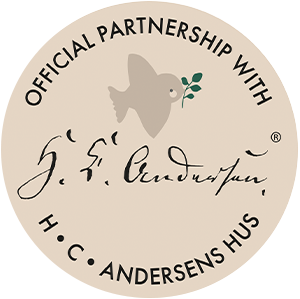


Moonboon Team
Choosing a name for your child is one of the most significant decisions you will make as a parent. A name often serves as the first impression of one's identity and can carry with it a legacy of cultural heritage, family values, and personal aspirations. Among the diverse options available, German and old German names stand out for their rich history, meaningful roots, and timeless appeal. These names reflect a blend of tradition and modernity, making them a captivating choice for any child.
German names often emphasize strong meanings that can inspire resilience, intelligence, and individuality. Many of these names have their origins in Germanic tribes, medieval history, or significant cultural figures, giving them depth and character. In contemporary times, parents are rediscovering the beauty of these names, recognizing their potential to stand out in a crowd while maintaining a sense of tradition.
Old German names, in particular, offer a glimpse into the past, with many names featuring strong consonants and melodious vowels. They convey strength, nobility, and a connection to history. Whether honoring heritage or simply appreciating their beauty, choosing a German or old German name for your child can imbue them with a sense of identity that is both unique and meaningful.
German girl names
German girl names often reflect beauty, strength, and grace. Each name carries significant meaning, allowing parents to choose names that resonate with their hopes and dreams for their daughters.
- Adelheid - Meaning "noble kind," it symbolizes grace and dignity.
- Alma - Meaning "nourishing," it embodies warmth and care.
- Anja - A variant of Anna, meaning "grace," it reflects elegance and beauty.
- Anneliese - A combination of Anna and Liese, meaning "grace" and "God's promise," it reflects elegance and hope.
- Astrid - Meaning "divinely beautiful," it signifies radiance and charm.
- Bettina - Meaning "pledged to God," it conveys a sense of commitment and spirituality.
- Brigitta - Meaning "exalted one," it embodies strength and honor.
- Britta - Meaning "strength," it symbolizes resilience and power.
- Clara - Meaning "bright" or "clear," it symbolizes clarity and intelligence.
- Dorothea - Meaning "gift of God," it embodies blessings and love.
- Elfriede - Meaning "elf strength," it signifies magic and power.
- Elke - Meaning "noble," it embodies dignity and honor.
- Freya - Meaning "lady" or "noble woman," it reflects strength and femininity.
- Frieda - Meaning "peaceful," it symbolizes tranquility and harmony.
- Gisela - Meaning "pledge," it embodies commitment and loyalty.
- Greta - A diminutive of Margarete, meaning "pearl," it symbolizes beauty and rarity.
- Hannelore - A combination of Hannah and Eleonore, meaning "grace" and "shining light," it reflects elegance and wisdom.
- Hilda - Meaning "battle," it reflects strength and courage.
- Ilse - A diminutive of Elisabeth, meaning "God is my oath," it signifies commitment and loyalty.
- Ingrid - Meaning "beautiful goddess," it reflects beauty and strength.
- Isolde - Meaning "ice ruler," it conveys strength and authority.
- Käthe - A diminutive of Katharina, meaning "pure," it embodies simplicity and purity.
- Lena - A diminutive of Helena, meaning "light," it embodies brightness and positivity.
- Lieselotte - A combination of Liese and Charlotte, meaning "God's promise" and "free woman," it signifies grace and independence.
- Margarete - Meaning "pearl," it symbolizes beauty and value.
- Marlene - A combination of Maria and Magdalene, meaning "sea of bitterness" and "tower," it reflects depth and strength.
- Marta - Meaning "lady," it symbolizes dignity and grace.
- Mira - Meaning "peace" or "world," it symbolizes tranquility and unity.
- Nadine - Meaning "hope," it symbolizes positivity and aspirations.
- Nina - Meaning "dreamer," it reflects creativity and imagination.
- Nora - Meaning "honor," it reflects integrity and respect.
- Petra - Meaning "rock," it embodies strength and stability.
- Petronella - Meaning "rock," it embodies strength and resilience.
- Renee - Meaning "reborn," it embodies renewal and hope.
- Roswitha - Meaning "famous strength," it reflects courage and resilience.
- Sabine - Meaning "Sabine woman," it reflects heritage and strength.
- Senta - Meaning "noble," it signifies dignity and grace.
- Sophie - Meaning "wisdom," it conveys intelligence and insight.
- Tabea - Meaning "gazelle," it symbolizes grace and beauty.
- Tilda - A diminutive of Mathilda, meaning "battle-mighty," it symbolizes strength and bravery.
- Tina - A diminutive of Christina, meaning "follower of Christ," it signifies spirituality.
- Ursula - Meaning "little bear," it embodies strength and courage.
- Ute - Meaning "prosperity," it embodies success and abundance.
- Vera - Meaning "faith," it symbolizes trust and reliability.
- Wanda - Meaning "shepherdess," it reflects guidance and care.
- Wiebke - Meaning "battlewoman," it embodies courage and power.
- Wilhelmine - Meaning "will helmet," it reflects protection and strength.
- Xenia - Meaning "hospitality," it embodies warmth and kindness.
- Zelda - Meaning "blessed," it symbolizes fortune and positivity.
- Zita - Meaning "little rose," it symbolizes beauty and delicacy.
German boy names
German boy names often carry strong meanings and historical significance. They reflect qualities such as bravery, wisdom, and strength, making them a wonderful choice for any child.
- Adalbert - Meaning "noble and bright," it symbolizes intelligence and grace.
- Alaric - Meaning "ruler of all," it embodies authority and leadership.
- Alfons - Meaning "noble and ready," it symbolizes courage and strength.
- Armin - Meaning "soldier," it reflects bravery and resilience.
- Bastian - A diminutive of Sebastian, meaning "venerable," it reflects respect and honor.
- Benedikt - Meaning "blessed," it conveys fortune and favor.
- Benediktus - A variant of Benedikt, meaning "blessed," it conveys fortune and favor.
- Dieter - Meaning "warrior of the people," it symbolizes strength and courage.
- Emil - Meaning "rival," it embodies ambition and determination.
- Emmerich - Meaning "powerful ruler," it symbolizes authority and leadership.
- Falk - Meaning "falcon," it embodies swiftness and agility.
- Ferdinand - Meaning "bold voyager," it signifies adventure and bravery.
- Georg - Meaning "farmer," it reflects hard work and diligence.
- Gottlieb - Meaning "God's love," it embodies spirituality and kindness.
- Hartmut - Meaning "brave spirit," it reflects courage and tenacity.
- Hugo - Meaning "mind" or "intellect," it symbolizes wisdom and insight.
- Johann - Meaning "God is gracious," it embodies spirituality and love.
- Justus - Meaning "just" or "fair," it reflects integrity and honor.
- Jürgen - A form of George, meaning "farmer," it signifies diligence and hard work.
- Karl - Meaning "man" or "free man," it reflects independence and strength.
- Konrad - Meaning "bold counsel," it symbolizes wisdom and strength.
- Leon - Meaning "lion," it symbolizes bravery and courage.
- Lothar - Meaning "famous army," it reflects honor and bravery.
- Matthias - Meaning "gift of God," it symbolizes blessings and hope.
- Maximilian - Meaning "greatest," it embodies excellence and ambition.
- Moritz - Meaning "dark-skinned" or "Moor," it conveys uniqueness and depth.
- Nicolas - Meaning "victory of the people," it reflects community triumph.
- Niklas - A variant of Nicholas, meaning "victory of the people," it reflects community spirit.
- Oskar - Meaning "God's spear," it conveys strength and valor.
- Otto - Meaning "wealth," it conveys prosperity and abundance.
- Rainer - Meaning "wise army," it symbolizes strategy and strength.
- Ralf - Meaning "wolf counsel," it embodies wisdom and strength.
- Rudolf - Meaning "famous wolf," it embodies strength and courage.
- Sebastian - Meaning "venerable," it symbolizes respect and honor.
- Siegfried - Meaning "victory peace," it embodies triumph and serenity.
- Sven - Meaning "young man" or "boy," it symbolizes youth and vigor.
- Theo - Meaning "divine gift," it conveys spirituality and blessings.
- Thilo - A diminutive of Dietrich, meaning "people's ruler," it conveys leadership.
- Tobias - Meaning "God is good," it conveys spirituality and hope.
- Ulrich - Meaning "prosperity and power," it symbolizes success and strength.
- Valentin - Meaning "strong," it embodies resilience and fortitude.
- Vincent - Meaning "conquering," it embodies victory and strength.
- Waldemar - Meaning "famous ruler," it reflects authority and nobility.
- Wendel - Meaning "wanderer," it symbolizes adventure and exploration.
- Wilhelm - Meaning "resolute protector," it embodies strength and guardianship.
- Wolfgang - Meaning "traveling wolf," it reflects independence and strength.
- Xaver - Meaning "bright," it symbolizes enlightenment and clarity.
- Yannick - A variant of John, meaning "God is gracious," it reflects spirituality.
- Zacharias - Meaning "the Lord remembers," it conveys faith and hope.
- Zoltan - Meaning "sultan" or "ruler," it reflects authority and leadership.
Gender-neutral names
Gender-neutral names are becoming increasingly popular, reflecting modern sensibilities and inclusivity. German and old German names offer a variety of options that are perfect for any child, regardless of gender.
- Adel - Meaning "noble" and originates from the Old High German adal, representing qualities of nobility and suitability for any individual.
- Kris - Meaning "follower of Christ," derived from Kristian, and has evolved into a widely accepted name that can be used for anyone.
- Lennox - Meaning "with many elm trees," having become embraced as a name across various cultures, including this one.
- Romy - Meaning "rose" or "dew," originally a diminutive of Romana, and has gained popularity as a standalone name.
- Sasha - Meaning "defender of mankind," derived from Alexander, and is recognized as a name used by many.
- Sven - Meaning "young man" but has been adopted more broadly in recent years.
- Edel - Meaning "noble" or "precious," derived from the root word for nobility and is a name that can be used by anyone.
- Niko - Meaning "victory of the people" and has become popular as a modern name.
- Florian - Meaning "flowering" or "blossoming," traditionally associated with males but increasingly accepted as a versatile option.
- Talen - Meaning "natural ability" and has emerged as a contemporary name.
Choosing a name is a meaningful part of welcoming a new life into the world. German and old German names offer a unique blend of tradition, beauty, and strength that can resonate with any family, regardless of their heritage. From girl names that embody grace to boy names that symbolize bravery, and gender-neutral options that embrace inclusivity, these names have stood the test of time. As you embark on this exciting journey of naming your child, consider the legacy and inspiration that a German or old German name can bring to their life.
If you're interested in broader naming choices, be sure to check out our article on gender-neutral names, highlighting options that embrace individuality while crossing cultural boundaries.




































